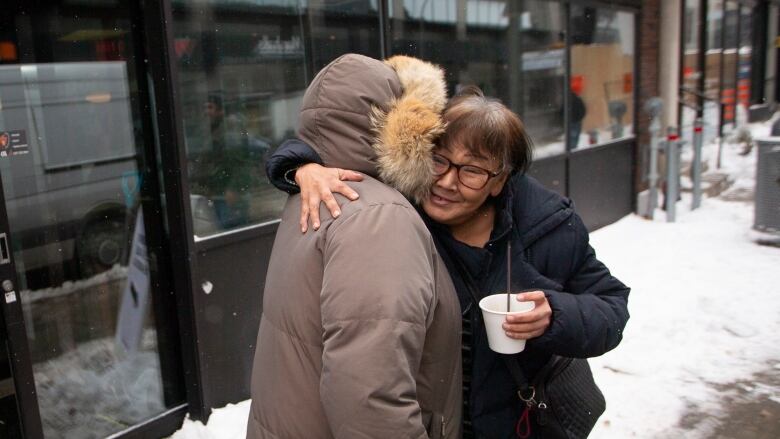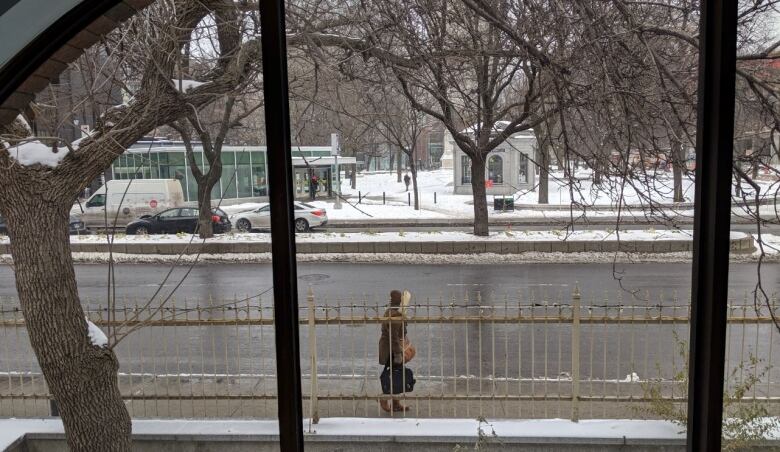Just in time for early winter, new day shelter at Cabot Square opens to those in need
Resilience Montreal, inaugurated Thursday, aims to fill gap in service left by relocation of Open Door

Only a month ago, the place was a mess: chipped paint, holes in the wall and a carpet that looked like it dated back to the 1970s.
Now, with the help of a small staff and more than 100 volunteers, the new day shelter across the street from Cabot Square is ready to welcome those in need.
"It will help our community and give us better services," Putilik Qumak, an Inukoriginally from Cape Dorset, said with tears in his eyes.
Qumak, who has been spending time inCabot Square since he moved to Montreal two decades ago, was one of dozens of Inuit and First Nations people who attended a packed event tocelebratethe opening of the shelter Thursday.
Qumak helped MayorValrie Plante cut the ribbon.

The new centre, called Resilience Montreal, is a joint project backedby Nakuset of the Native Women's Shelter and Sheila Woodhouse, the executive director of Nazareth Community.
Itwas established in response to what community members and outreach workers described as acrisis following the Open Door shelter's move to a new location last year.
Situated in a shuttered restauranton the corner of Atwater and Ste-Catherine, the centrewill provide food, beds and social services to those in need.It also has a fireplace, a wall lined with plants and quiet spaces to relax.
"We wanted to make it beautiful," said Nakuset, as she offered reporters a tour of the new space. "Most places that have a fireplace and greenery, they get kicked out of."

Architecture Without Borders Quebechelped design the new space. Volunteers like Margo Buchanan, 24, put in countless hours in recent weeksto ready it.
"When I heard about this project, I got really excited," said Buchanan.
She described how she was still laying down flooring Thursday morning, just hours before the mayor's visit.
The shelter will be open seven days a week, from 8 a.m. to 8 p.m., to both men and women.
David Chapman, who formerly headed the Open Door and is now managing director of Resilience Montreal, said the early feedback from those who frequent Cabot Square has been positive.
"They give it two thumbs up," he said.

Chapman said he has already hired six outreach workers and plans to hire a total of 10.
But he cautioned that Resilience Montreal only signed to a one-year lease, and the building is likely to be turned into condominiums.
He said securing land for a permanent location is a challenge in the fast-changing area, where a toweringreal estate development is going up at the site of the former Montreal Children's Hospital.
The new shelteris in Westmount, on the western border of the City of Montreal. Westmount Mayor Christina Smith said the shelter is "only one step in the solution," and her city commits to working with Montreal and community groups to find "a long-term solution" to meet the needs of itinerant people in that neighbourhood.












_(720p).jpg)


 OFFICIAL HD MUSIC VIDEO.jpg)
.jpg)



























































































